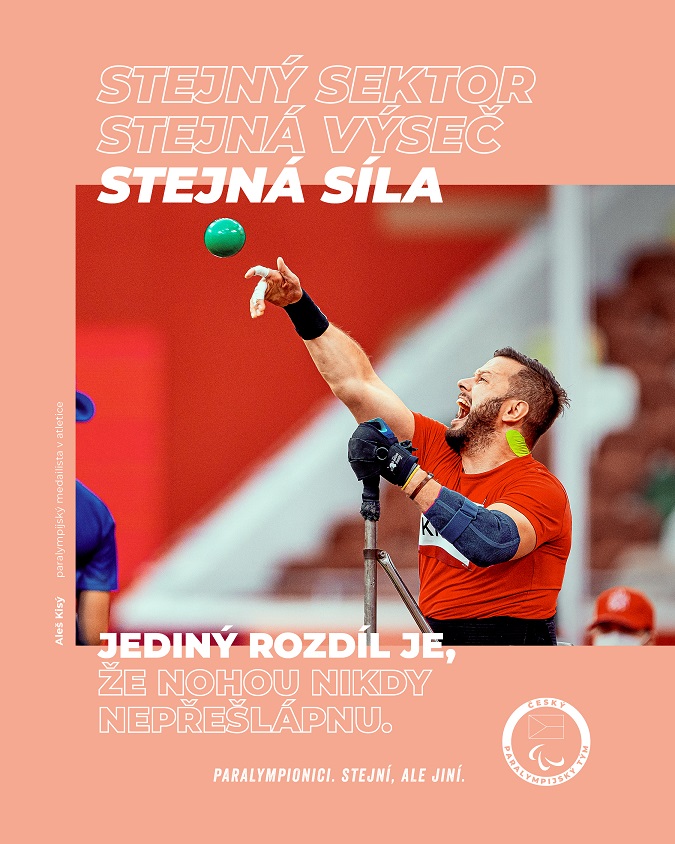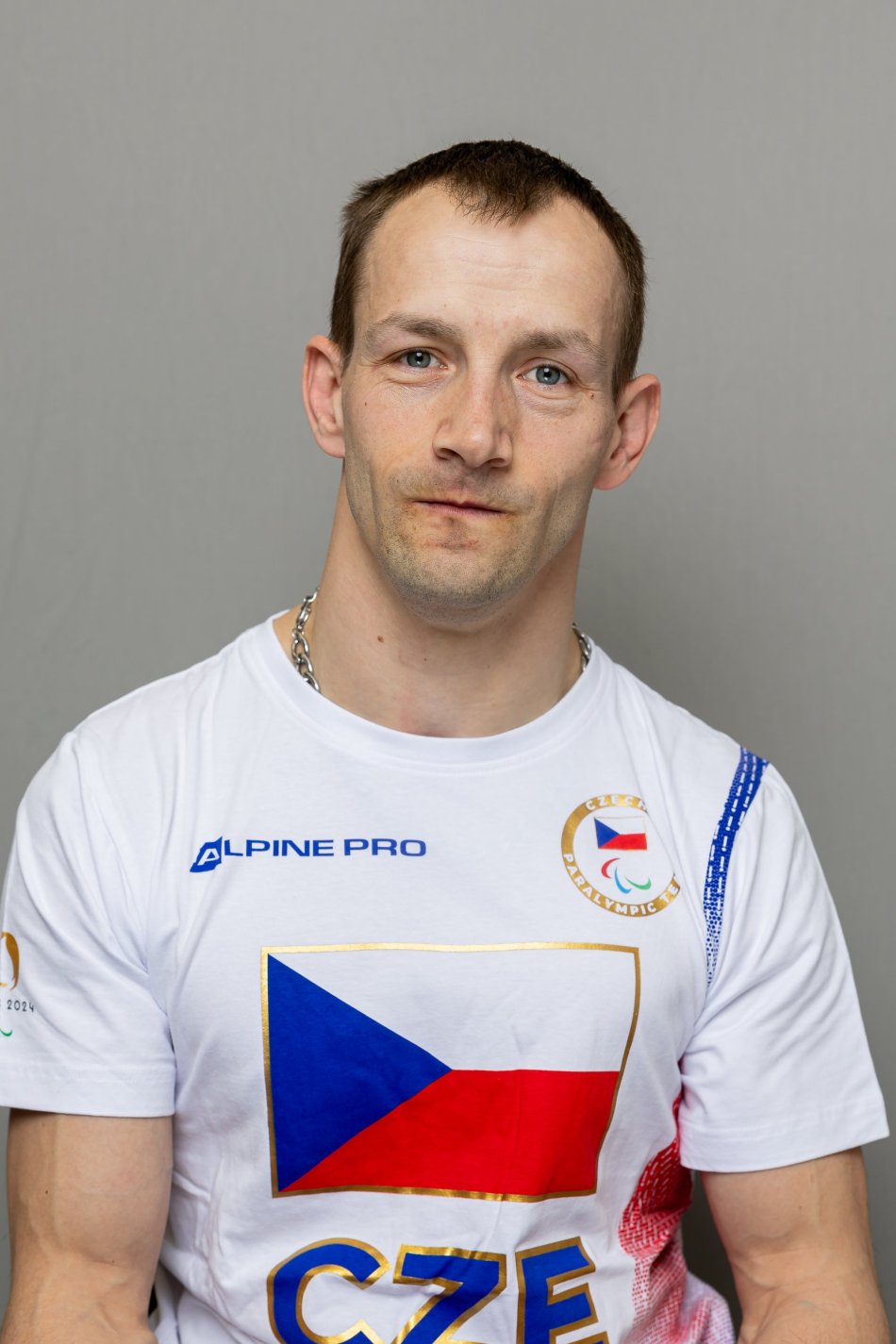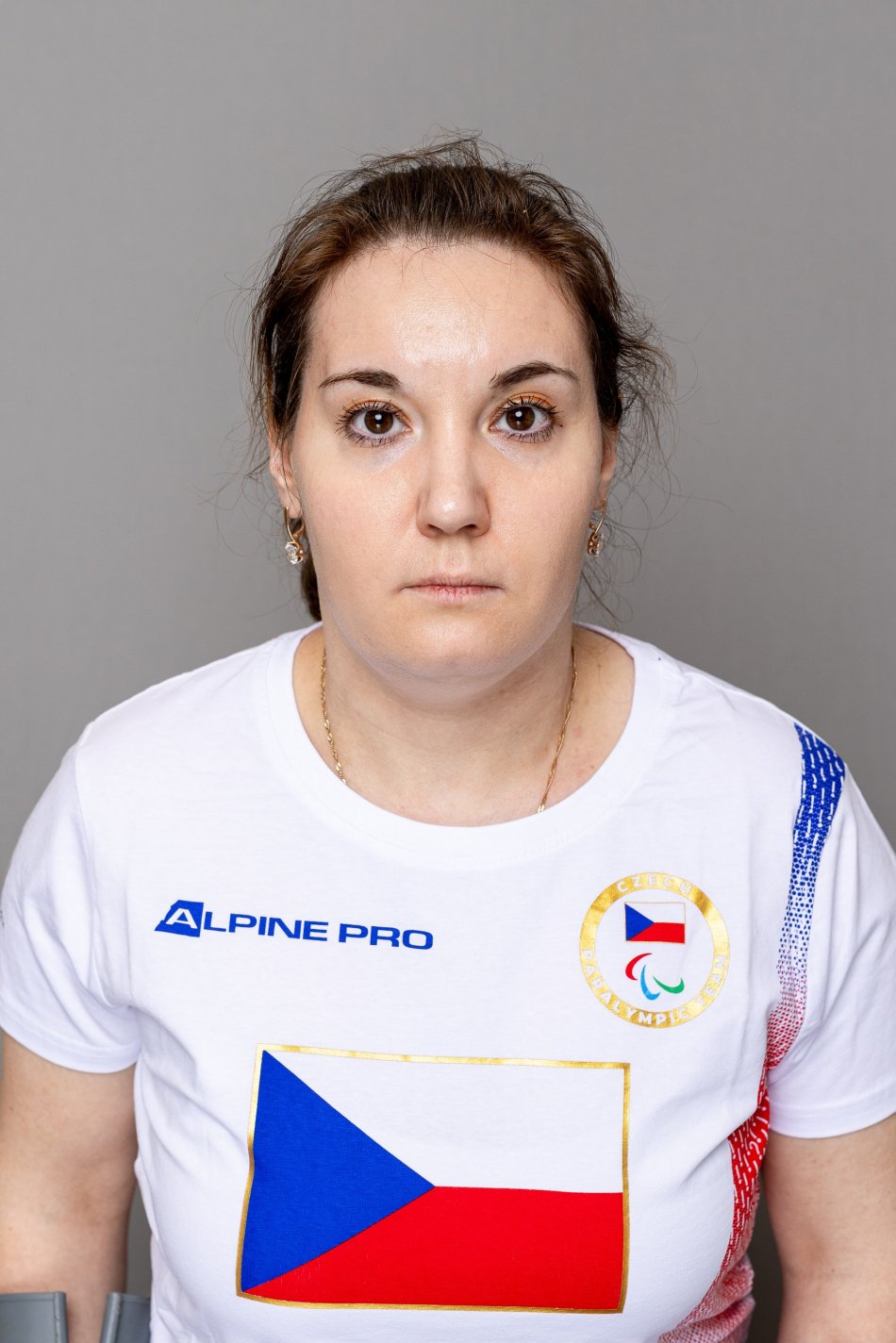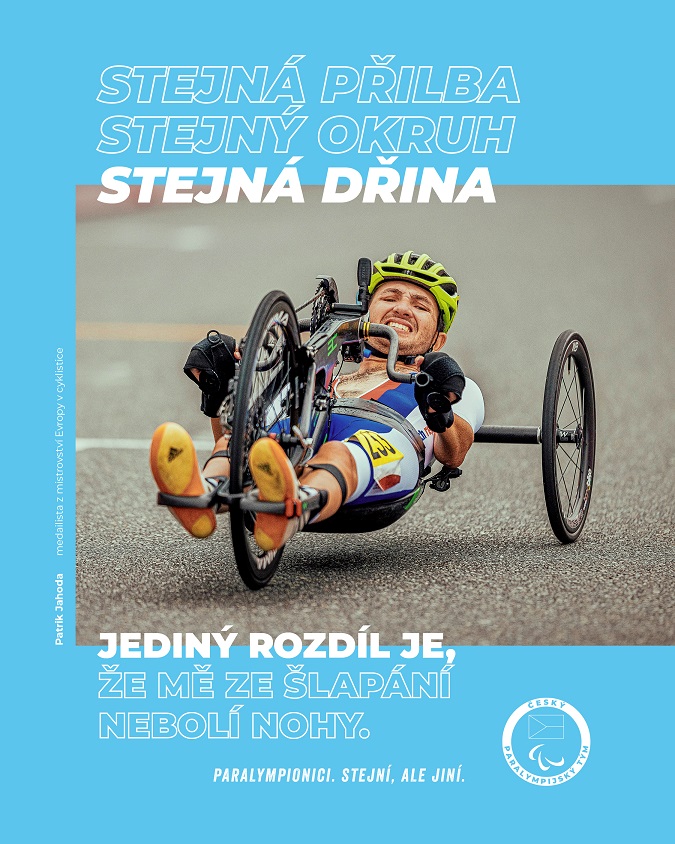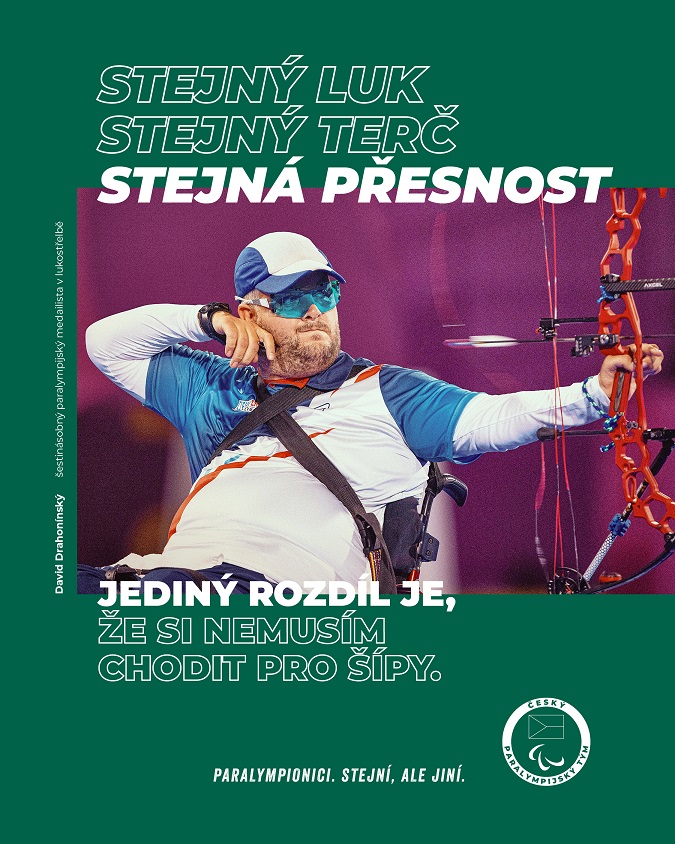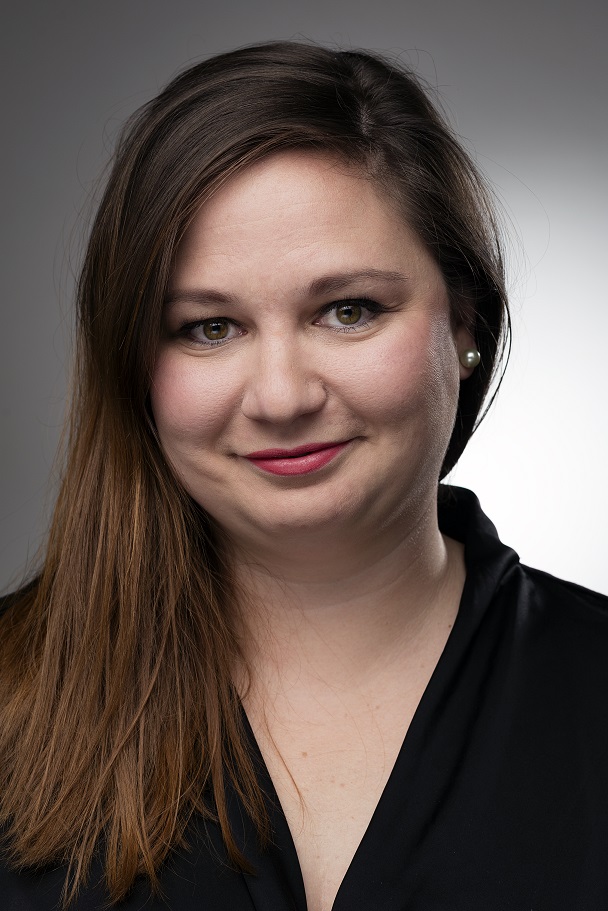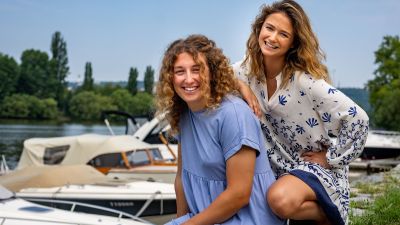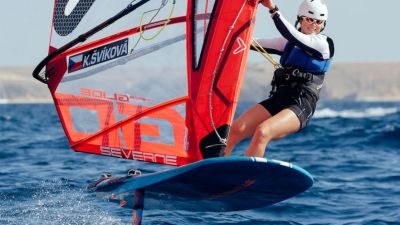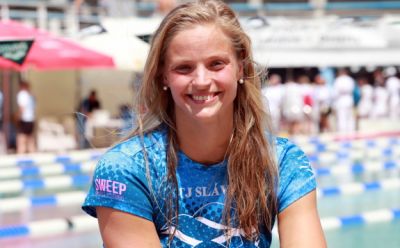The XVth Summer Paralympic Games have begun in Paris, lasting from Wednesday 28 August to 8 September. According to Veronika Macková, an expert at the Faculty of Social Sciences of Charles University, the upcoming games are novel for at least one reason, if not more: for the first time, the organising committees of the Olympic and Paralympic Games merged and promoted the Olympics together. Dr Macková, a former Czech Television personality and a former director of communications for the Czech Paralympic Committee, says that was a change for the better.
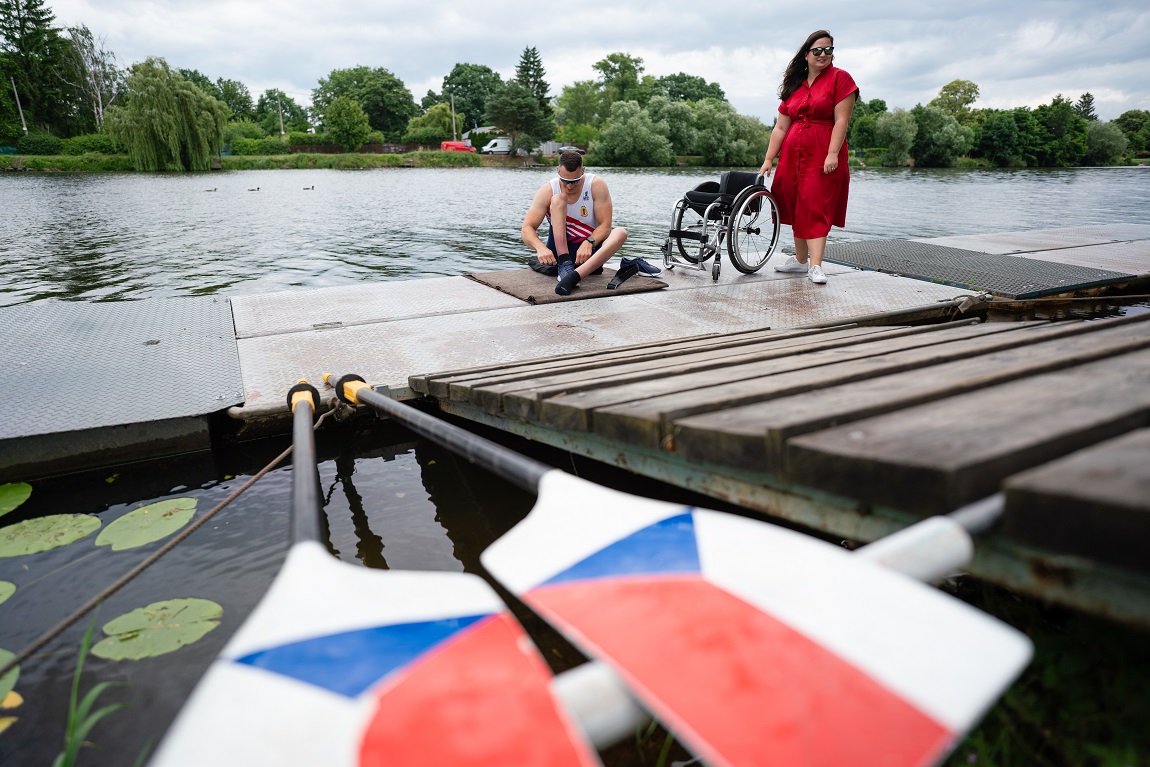
CU media expert Veronika Macková with Czech paratriathlete Tomáš Nevěčný (photo by František Géla).
Dr Macková will be following Paralympics in the French capital; professionally, she writes regularly about parasport and is also a fan. How many medals does she think the Czech team will secure? “I think there might be more than at the Olympics. And there will definitely be a lot more than in Tokyo; I'm guessing more than 10,” she says. While the global competition will be tough, the Czech team has several irons in the fire with several hopes to clinch hard-earned metals. Among the athletes, Anna Luxová and Aleš Kisý will defend their bronze medals in the shot put. Meadals could also be won in boccia as Adam Peška is defending the gold, he also competes in pairs with Marcela Čermáková.
“In cycling I would predict three medals and the same in archery, where David Drahonínský excels. In swimming, Arnošt Petráček (gold from Rio 2016 and silver from Tokyo) and 16-year-old David Kratochvíl, who was amazing at last year's World Championships and this year's European Championships among the blind, could shine," Macková said.
Agáta Koupilová (medallist at the World and European Championships), who studies law in Brno, will swim in the combined S4 and S5 category. And shooters Jakub Kosek or Tomáš Pešek may surprise. We'll see, a guess for 10 or 11 medals is very bold, but hopefully realistic," laughs Macková, who is happy that not only Czech Television and Czech Radio are giving more space to the Paraolympics and similar events.
The Czech team and 'CU’s three'
Thirteen women and nineteen men will represent the Czech Republic. The Czech team includes nine participants who are taking part in this top sporting event for the first time. In total, 4,400 athletes will compete in 549 disciplines in 22 different sports. Athletes will compete in the usual competitions (such as athletics, canoeing, cycling, judo, swimming and archery), but also in unique sports such as boccia and goalball.
According to available information, the Czech team includes three active athletes associated with Charles University. František Serbus is an employee of the Faculty of Physical Education and Sport of Charles University where he works in the Editing Centre as a graphic designer and is a fitness trainer. Serbus is an experienced Paralympian, going to his fourth Games. In Beijing 2008 he was sixth in the shot put and seventh in the discus, before improving to fifth in the discus at London 2012. He also tried boccia and also the bowling throw (13th place). At the last Paralympics in Tokyo he continued with this event, finishing seventh with a throw of 32.53m. Thirty-nine year old Serbus, who suffered hypoxia during childbirth which left him with his disability, is waiting for his first medal from the Games. We are keeping our fingers crossed for the Czech record holder and European champion in the final on 31 August evening!
Anastasja Vistalova is a twenty-nine year old law graduate representing the Czech Republic in the Para-Dressage, is going to her third Games. She graduated from the Faculty of Law of Charles University three years ago, and defended her master's degree with her thesis Criminal Aspects of Cyberbullying. The competitor was born with cerebral palsy and began hippotherapy at the age of three: that led her to dressage from the age of 13.
“It's kind of like figure skating on horseback,” the CU alumna, who made her Paralympic debut in Rio 2016 (she finished 16th), says. She improved to 13th at the last Games in Tokyo. In Paris 2024, she will be in the saddle of the mare First Love, whom she affectionately calls "Lavcha". Vistalova will enter the competition programme on the morning of 3 September.
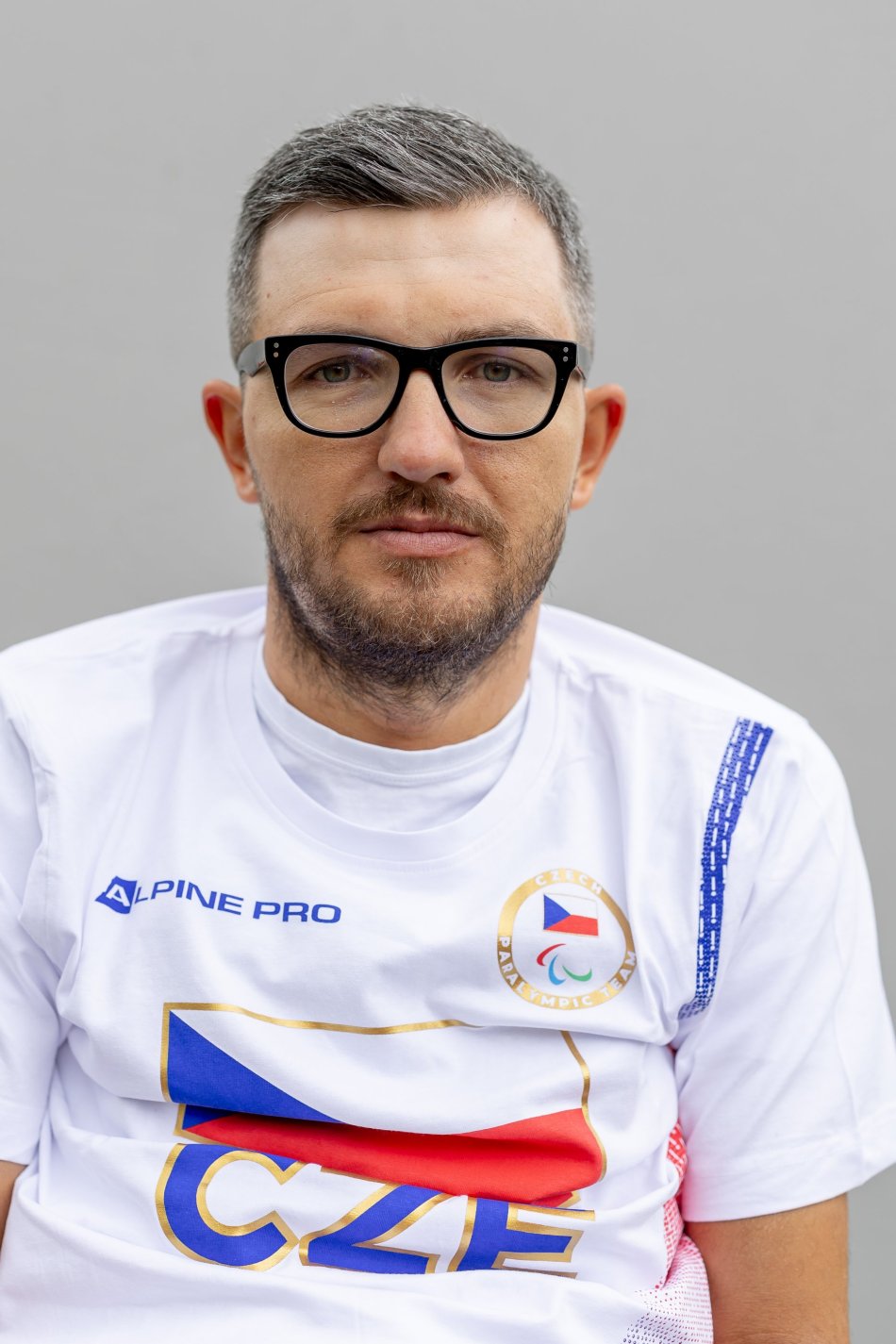 The third athlete with ties to CU is cyclist Patrik Jahoda. The passionate athlete attended the Faculty of Humanities of Charles University, but not complete his degree. In his early youth he did waterskiing, became European champion and after an injury changed sports to handbike, a hand-powered bicycle (tricycle), in which he now excels. He didn't finish the road race at the Tokyo Paralympics, but narrowly missed out on a medal in the time trial, finishing fourth. He will have a chance to improve in both H1 road events on Wednesday 4 September and Saturday 7 September.
The third athlete with ties to CU is cyclist Patrik Jahoda. The passionate athlete attended the Faculty of Humanities of Charles University, but not complete his degree. In his early youth he did waterskiing, became European champion and after an injury changed sports to handbike, a hand-powered bicycle (tricycle), in which he now excels. He didn't finish the road race at the Tokyo Paralympics, but narrowly missed out on a medal in the time trial, finishing fourth. He will have a chance to improve in both H1 road events on Wednesday 4 September and Saturday 7 September.
A significant event
What makes the upcoming competition special? “The Paralympics provides athletes with the opportunity to represent their country at an international level. For many, it is an honour that boosts national pride and sends a strong message about how their country supports athletes with disabilities at the top level. Overall, participation in the Paralympics has a deep and multifaceted meaning that goes far beyond sporting success,” says Ilona Pavlová from the Department of Health Physical Education and Sports Medicine at the Faculty of Physical Education and Sport of Charles University (Faculty of Physical Education and Sport).
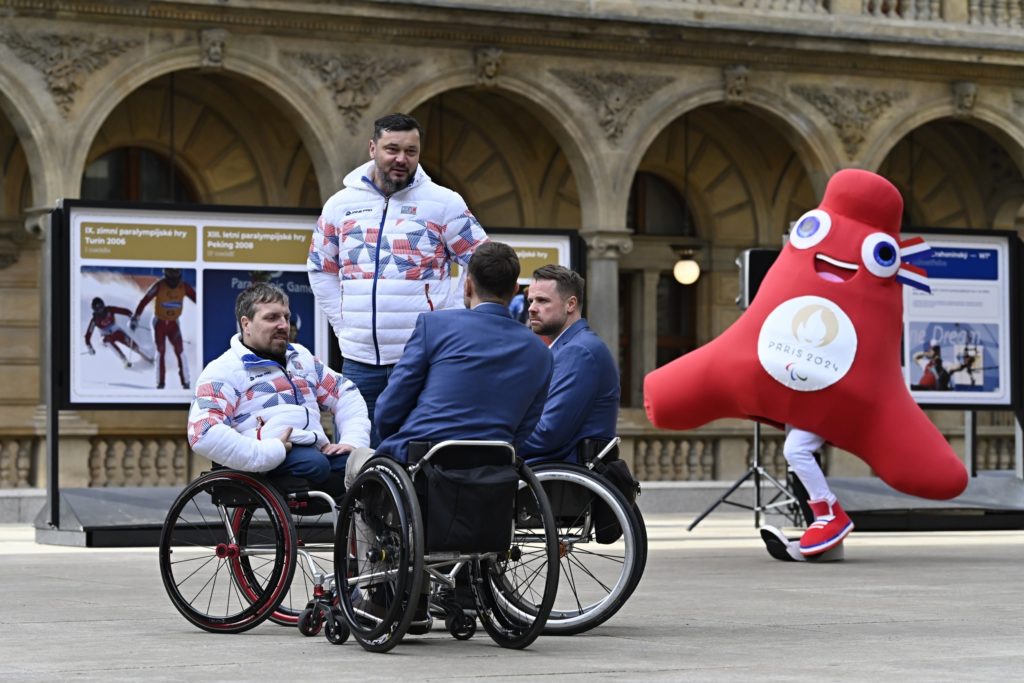
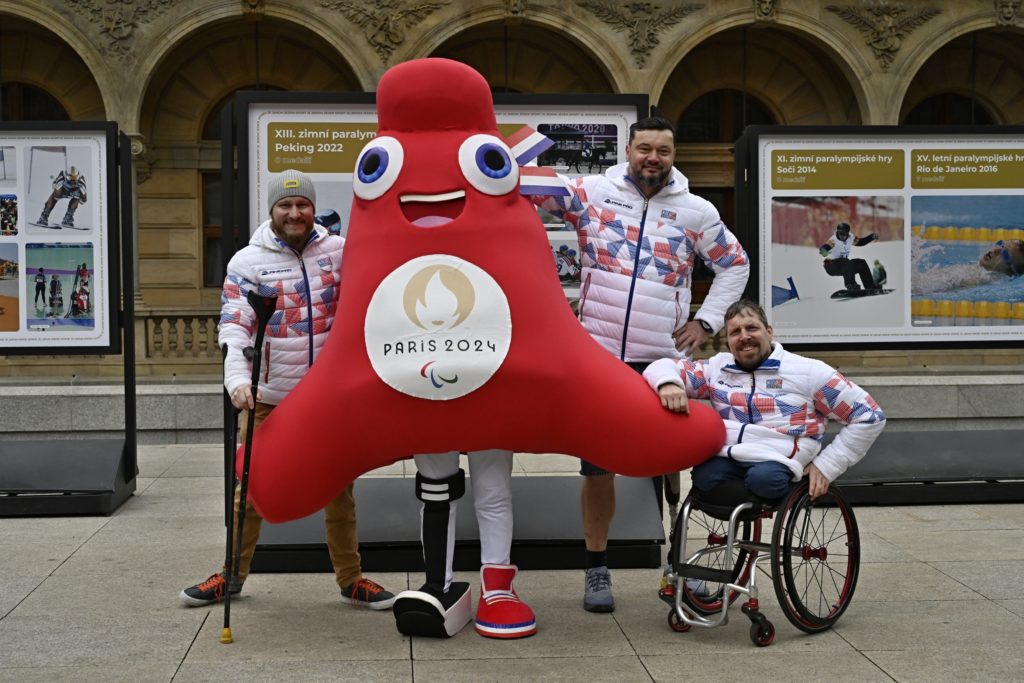
Photos from the opening of the outdoor exhibition to celebrate 30 years of the Czech Paralympic Committee. On the right is the red mascot of the iLPH 2024 in Paris.
And many other meanings concretised. “The Paralympics promote equality, break down stereotypes and change public attitudes towards people with disabilities. It contributes to a wider acceptance of diversity and promotes equal opportunities in sport and life in general. Let Paralympians feel the support of their fans, families, friends and the whole nation. Their success will be the success of all of us,” says Pavlová, who, together with her colleagues, wishes the Czech team a strong experience and a sense of pride in what they have achieved. However, the success would not have been possible without additional help - including from the students of Applied Physical Education and Sport for People with Special Needs, who also participated in the preparation as coaches, assistants and physiotherapists.
When Kladruby was ahead of the world...
Disability sport has a history, but not that long. Movement was mainly seen as part of rehabilitation - after injuries and serious illnesses. During the Second World War, in 1944, Sir Ludwig Guttmann founded a national centre for people with spinal injuries in Stoke Mandeville, England, and on 29 July 1948 the first Games for the disabled were held; the archery competition was then held, featuring fourteen war veterans and two women veterans.
However, it is little known that very shortly before this event, also in 1948, similar Kladruby Games were held! “The pioneer of handicapped sports was Vojmír Srdečný. He was instrumental in building the system of health physical education in the then Czechoslovakia,” recalls Macková.
As a student, Srdečný (1919-2019) was sent by the Nazis to Sachsenhausen before the war - on the memorable 17th November 1939 - and then worked as a physiotherapist at the Rehabilitation Institute in Kladruby and later taught at the Faculty of Education in Hradec Králové (from 1964 to 1985).
The first official Paralympic Games were held in Rome in 1960, with about 400 athletes from 23 countries; the first Winter Paralympics were held in 1976 in Örnsköldsvik, Sweden. According to the CPV data, the first Czechoslovaks competed at the Games in Heidelberg in 1972, where 19 Czechoslovak Paralympians went and won their first medal (Dana Chmelová, bronze in the shot put).
“The turning point for the perception of parasport came in London 2012, because the organisers did a great job. The stadiums were sold out and Channel 4 TV taught viewers to watch parasport. They produced graphics for the London Games explaining the differences between disabilities in each category, had several black humour programmes, their own talk show and so on,” explains Veronika Macková from the Institute of Communication Studies and Journalism at the Faculty of Social Sciences of CU, explaining how the media coverage of the Paralympics was changing. By the way: the same faculty and journalism studies were studied, for example, by Anna (Kulíšková) Pešková, a skier with silver from Turin 2006 and bronze from Vancouver 2010 in Super-G. Then she became an ambassador for the charity Svetluška.
Celebrities and academic work
Disability sport is much more in the public eye than in the past; some athletes have personal sponsors, earn money and have even become celebrities, public figures and influencers. An example in the Czech Republic is the cyclist Jiří Ježek, who lost his leg in an accident when he was young, but thanks to the enormous will and support of his wife Sonia, he competed in the professional non-disabled peloton!
“Jiří Ježek is definitely an example of a celebrity among parasport athletes, because he has a lot of 'best' ones. In fact, he still holds the most titles and successes in Paralympic cycling. And now he's going to dance in StarDance, so the perception of parasport athletes will shift again. And you can see in Jiří that even parasport athletes can take the professional route,” Macková says of the well-known 49-year-old, who has a collection of six gold, four silver and one bronze medal from five Summer Paralympics.
But there are others too: the wheelchair archer Drahonínský, about whom Macková wrote a book in 2023, or the multiple Paralympic medallist swimmer Petráček, are very visible - also thanks to their humour. There are also more and more female stars, one of the hopes is the aforementioned athlete Luxová. A global star is the swimmer Jessica Long, who was also the advertising face of the Toyota car company.
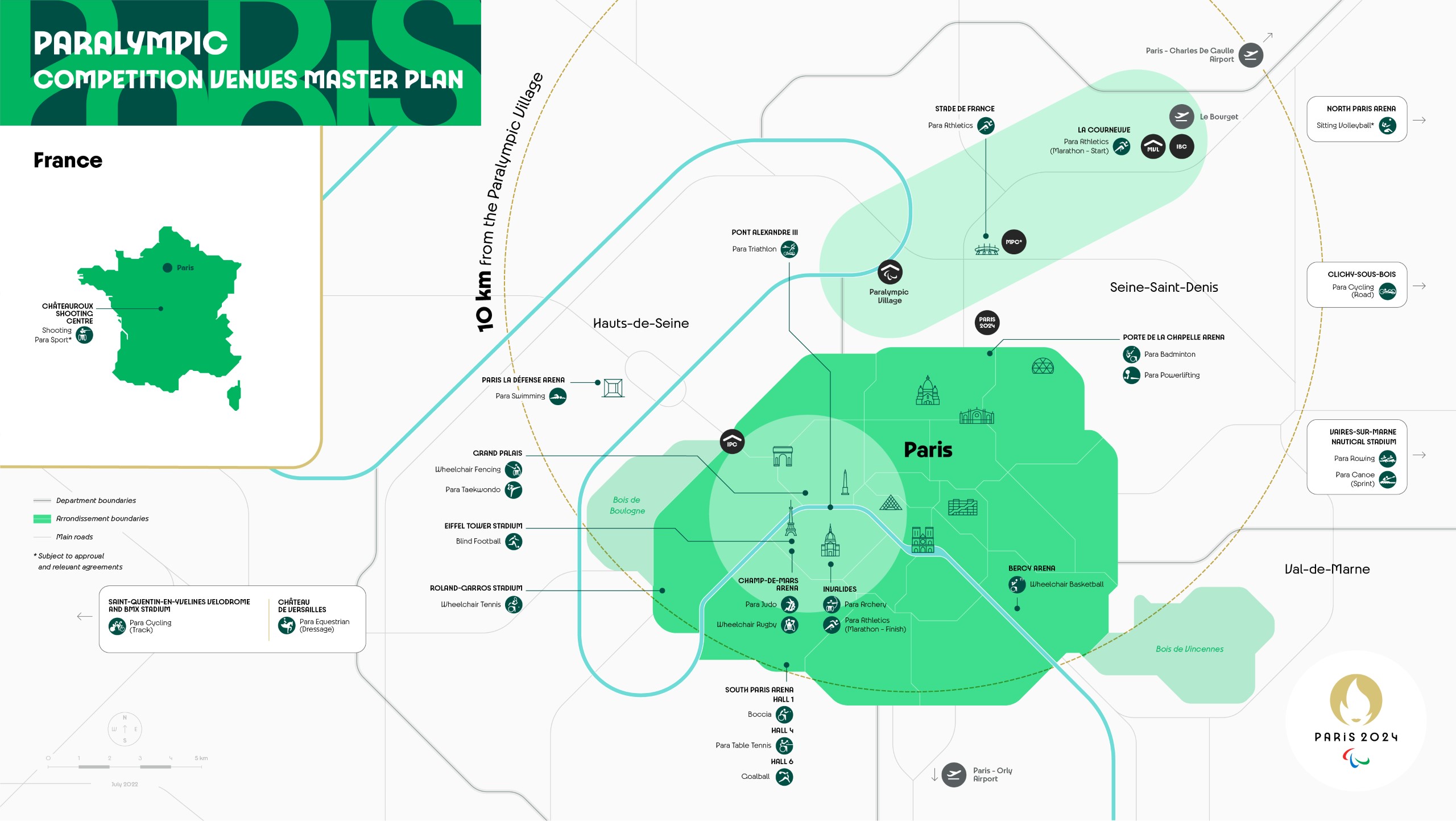
Přehled paralympijských sportovišť na nadcházejících hrách v Paříži 2024. Řada z nich je situována přímo v centru francouzské metropole.
There is also a growing academic interest in the sport, with studies in sport studies or disability studies and so on. For example, Macková was brought to her doctorate by the Dean Emeritus of the Charles University, Associate Professor Alice Němcová Tejkalová, who herself had been involved in the topic as a sports journalist.
“My doctoral thesis and subsequently my book Parasports Through the Eyes of Television Viewers (Karolinum 2023) are devoted to audience research. How people perceive parasport and parasport athletes. If they are already perceived as full-fledged athletes and if parasport is considered a full-fledged sport or if people still feel sorry for them and think that it is just a hobby in their free time. Unfortunately, research has shown that it goes back to the beginning when parasport was part of rehabilitation. Para hockey is an exception because it is seen as the only full-fledged sport,” she says.
And what would Veronika Macková tell the spectators of the Paris Paralympics?
“Enjoy the Paralympics; either at home in front of your TV screens or head to Paris. The Paralympics will offer great spectacle and excellent performances. But most importantly, don't forget to cheer on the Czech Para athletes!”
Czech Paralympic team competing in Paris (32):
(sport - name - year of birth, bold with link to CU))
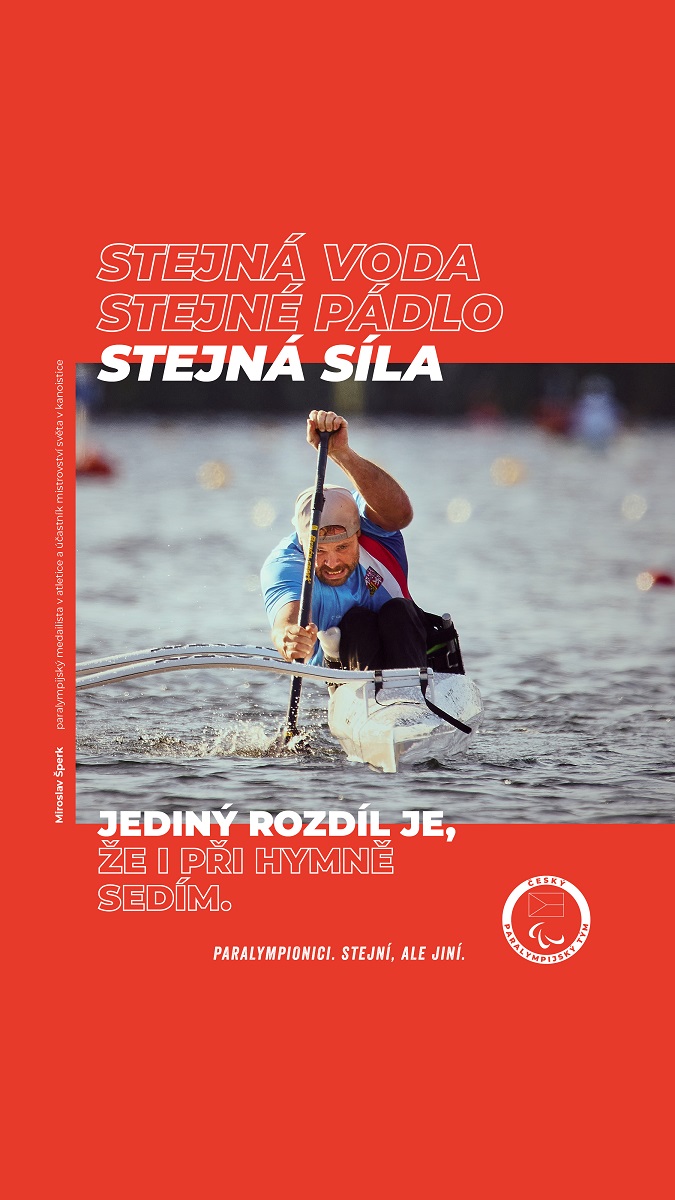 PARA-ATHLETICS
PARA-ATHLETICS
Eva Berná (1986)
Michal Enge (1985)
Tereza Jakschová (1995)
Aleš Kisý (1980)
Anna Luxová (1997)
Miroslava Obrová (1975)
František Serbus (1985)
Petr Vrátil (1983)
PARA-BOCCIA
Marcela Čermáková (2000)
Adam Peška (1997)
PARA-CYCLING
Kateřina Antošová (1965)
Patrik Jahoda (1993)
Jindřich Mašín (1989)
Pavlína Vejvodová (1989)
PARA-DRESSAGE
Anastasja Vištálová (1995)
Vladimír Votřel (1983)
PARA-ARCHERY
Tereza Brandtlová (1985)
David Drahonínský (1982)
Šárka Pultar Musilová (1991)
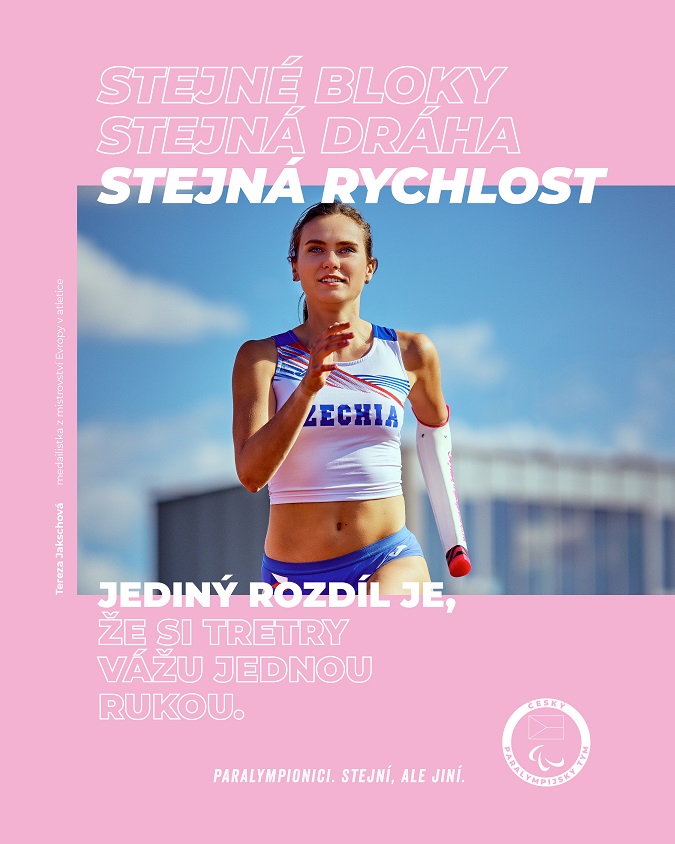 PARA-SWIMMING
PARA-SWIMMING
Alexandra Borská (2008)
Vendula Dušková (1998)
Jonáš Kešnar (2001)
Agáta Koupilová (1999)
David Kratochvíl (2007)
Arnošt Petráček (1991)
Tadeáš Strašík (2000)
PARA-TABLE TENNIS
Denisa Macurová (2003)
Filip Nacházel (1980)
Jiří Suchánek (1982)
Petr Svatoš (1990)
PARA-SHOOTING
Jakub Kosek (1985)
Tomáš Pešek (1992)
Source: Czech Paralympic Committee


